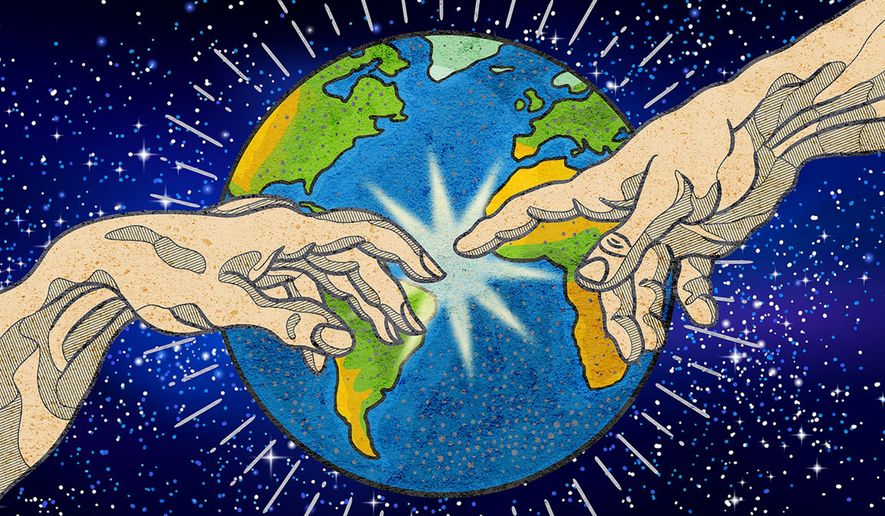OPINION:
One of the terrible truths about the world is this: Atheists don’t create much, and what they do manage to build dissolves fairly soon.
Consequently, a world in which people don’t believe in God and are indifferent to religion is a world that devolves into chaos pretty quickly.
This came to mind because last week, an analysis of the census in England and Wales reported that for the first time, probably since the reign of King Alfred in the ninth century, fewer than half of that population identify as Christian. Even at this late date, that marks the English and Welsh as laggards among their peer group. Even the Germans (54%) and the French (66%) have managed to hang on to some vestigial remnants of the ancient faith.
That Britain now leads Europe in the dissolution of organized religion is, of course, the result of many things, including a misguided affection for Enlightenment sentiments and a tight embrace of utilitarianism, as well as a natural consequence of the government — specifically, Henry VIII — taking over religion back in the 16th century. Once the government gets involved in a useful social activity, it is guaranteed to fail eventually.
There are a couple of reasons why this is important.
First, and of most immediate importance, is that nations that have lost sight of God tend to deteriorate pretty quickly. This deterioration is most obvious in fertility rates, and for good reason. If you believe that this world is all there is, why would you waste your time or energy having children?
Every country in Europe is dying. The replacement fertility rate — the number of children a woman must have, on average, to maintain the population — is 2.1. More than that means a population will grow; less than that means it will shrink.
The United Kingdom’s fertility rate is 1.7 (the same as the United States). Spain and Italy are the lowest in Europe at 1.3. France — with the highest fertility rate in Europe — is at 1.9.
In addition to literally losing the will to live, people who have lost sight of God create little durable value. Pretty much every institution worth anything in our society was created directly by Christian churches or was founded as an explicitly religious enterprise. Hospitals. Orphanages. Nursing homes. Universities. Law schools (sorry about that). Primary schools. Modern law.
Most of the social and political ideas that underpin our culture and polity have been the province of Christian believers. Popular sovereignty. Individual rights. Private property. Abolition. Suffrage. Civil rights. All of these were embedded in explicitly Christian frameworks that relied on the idea of a supreme being. They are also all rooted in the simple yet inordinately important belief that each of us is a child of the same God and that God loves us all equally. That belief demands that we care for one another as fellow sons and daughters of a loving God.
If our fellow humans are just physical beings scrambling around on this rock as it hurtles through space and time, why would anyone waste time trying to improve their lives?
More ominously, if we conclude that our rights don’t proceed from God (because he doesn’t exist) but are simply an accident of our birth, it makes it much easier for government to vitiate them.
The constructed world is no exception. Christian nations and peoples created almost all of the physical structures and art that this civilization carefully curates. Again, that makes perfect sense. If this world is all there is, why waste any of your precious time trying to improve it? You need to get on with the business of getting yours. Only those in touch with the transcendent and the eternal could care about the world after they physically leave it.
As we careen toward the celebration of the birth of the carpenter and iterant preacher who saved us, it is worth considering what the world would look like if he had never lived on Earth. The short answer? It would be a lot worse.
Those who think the dissolution of Christianity is of no material importance are manifestly wrong. Unfortunately, by the time most figure that out, it will be very late in the day.
Have a merry Christmas.
• Michael McKenna, a columnist for The Washington Times, co-hosts “The Unregulated Podcast.” He was most recently a deputy assistant to the president and deputy director of the Office of Legislative Affairs at the White House.




Please read our comment policy before commenting.